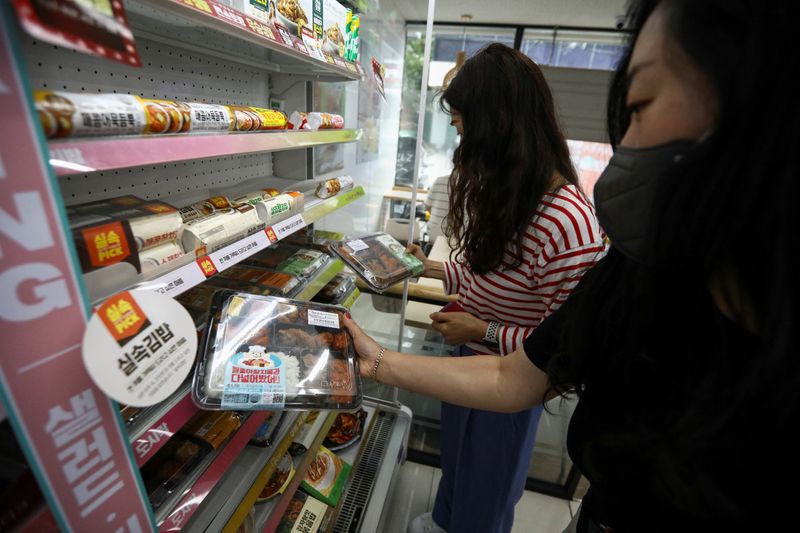SEOUL (Reuters) -South Korea's consumer prices rose 3.1% in March from the same month the year before, in line with market expectations and matching the previous month's pace, with inflation expected to slow in the months ahead.
"With weather conditions improving from April and policy effects materialising, inflation is expected to stabilise quickly from the second half of the year after hitting a peak in March," South Korean finance minister Choi Sang-mok said.
Choi said authorities would continue to take measures to bring down inflation to the 2% range and urge companies to cut prices.
The Bank of Korea (BOK), meanwhile, said while the pace of inflation would slow gradually, there was uncertainty about whether it would meet the central bank's target of 2%.
Last month, South Korea came up with measures worth 150 billion won ($110.68 million) to stabilise produce prices, as inflation emerged as a major policy issue heading into the country's parliamentary election.
On a monthly basis, the consumer price index rose 0.1% in March, slower than the 0.5% rise in February and the 0.3% gain tipped in a Reuters survey of economists.
Prices of agricultural products jumped 1.3% over the month, while petroleum products also climbed 1.5%.
The BOK held interest rates at a 15-year high at their last meeting in February, with most board members saying it was too early for a policy pivot. The central bank next meets on April 12.
Core CPI, excluding volatile food and energy items, rose 2.4% in March on an annual basis, slightly off the 2.5% pace in February and the slowest increase since December 2021.
($1 = 1,355.2100 won)
